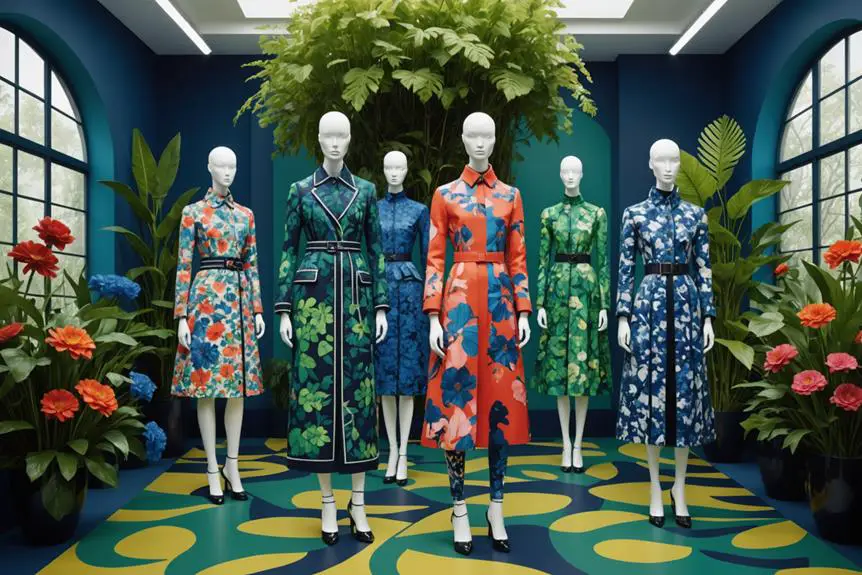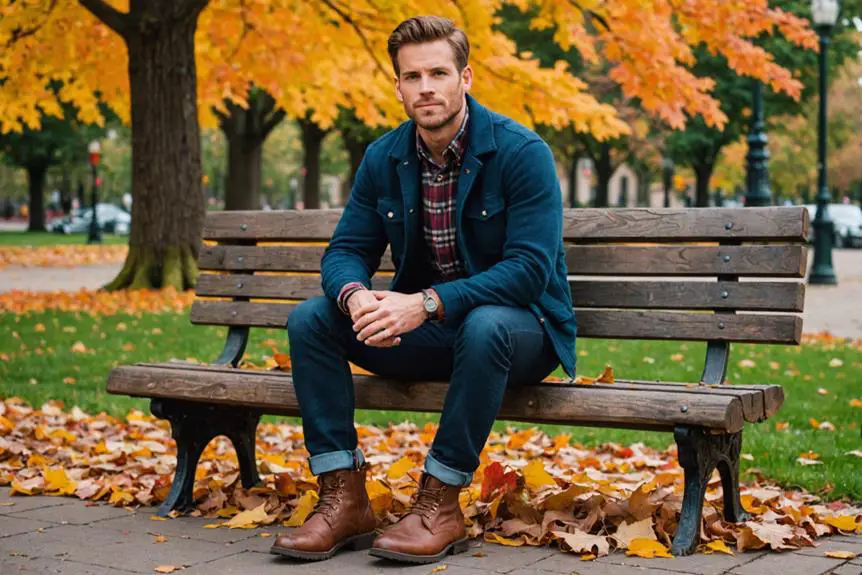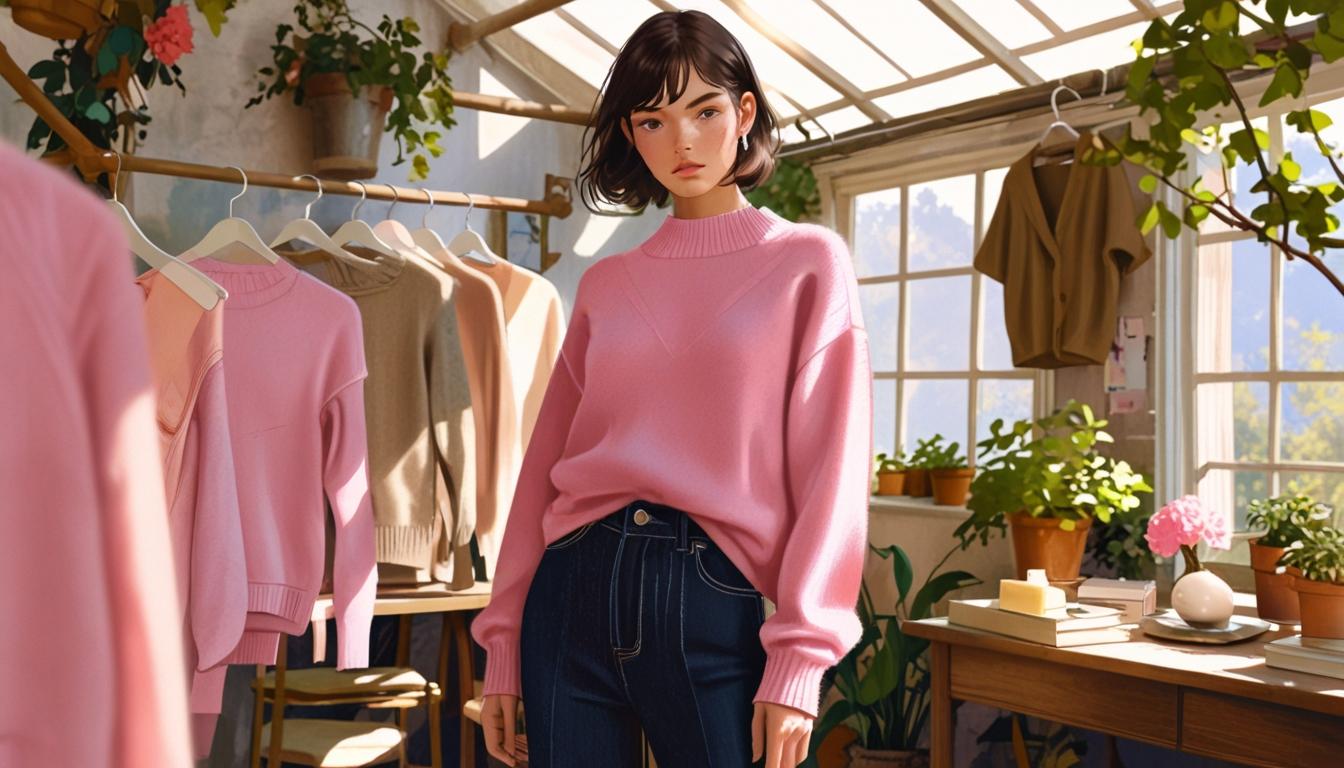In the world of fashion, brands can shift ownership like sand through your fingers, and Kenzo is no exception. You're likely aware that its current steward is LVMH, a giant in luxury goods, but the story doesn't end there. Since its acquisition in 1993, Kenzo has transformed under LVMH's umbrella, especially with Nigo's recent influence. What does this mean for the brand's identity and future direction? The layers of this ownership reveal intriguing dynamics worth exploring further.
History of Kenzo
Kenzo's story begins in 1970 when Japanese designer Kenzo Takada opened his first boutique, Jungle Jap, in Paris. Can you imagine the excitement of that moment? Kenzo was all about blending cultural diversity with luxury fashion, making waves in the style world. His approach to design resonates with a similar ethos found in luxury brands like Ralph Lauren's cultural impact. By 1976, the brand name changed to simply Kenzo—turns out, "Jungle Jap" had some negative vibes in the U.S.
But Kenzo didn't stop there! In 1983, he expanded his offerings to include mens clothing, and by 1987, children's wear joined the lineup. Who wouldn't want their little ones to rock Kenzo styles? Then, in 1988, the brand launched its first fragrances, giving fans a whole new way to experience the Kenzo vibe.
Fast forward to 1993, and Kenzo was acquired by LVMH for around $80 million. That's a big deal! This acquisition marked a new chapter in its history, setting the stage for even greater things.
In 2021, Nigo stepped in as the new artistic director, bringing a fresh, contemporary streetwear aesthetic to Kenzo. He's mixing things up while still honoring the brand's roots. You can really feel the evolution, can't you? Kenzo has come a long way from that first boutique. It's all about celebrating creativity and cultural diversity, making it a standout name in both mens and womens clothing. So, what's your favorite Kenzo piece?
Ownership and Leadership
Since its acquisition by LVMH Moët Hennessy Louis Vuitton in 1993 for about $80 million, Kenzo has seen significant shifts in ownership and leadership that reflect its evolving identity. The brand's rich history, including its vintage tag designs, plays an essential role in understanding its transformation over the years. You might be wondering how all this affects the brand. Well, let's explore!
Today, Kenzo is led by CEO Sylvain Blanc, who's all about innovation and boosting the brand's global market presence. Under his watch, Kenzo's focus has shifted, showing a blend of luxury and streetwear styles. It's thrilling to see how the brand is evolving in this fast-paced world, right?
In 2021, Nigo was appointed as the new artistic director, and he's known for his huge influence in streetwear. Talk about a game-changer! He succeeded Felipe Oliveira Baptista, marking a new era for Kenzo. With Nigo at the helm, fans are enthusiastic to see how he'll bring his unique flair to this iconic brand.
Kenzo's ownership under LVMH has allowed it to grow and adapt, but the brand isn't just about luxury anymore. It's embracing streetwear culture, which is totally connecting with younger audiences. With nearly 145 stores worldwide, Kenzo is making its mark in key markets like Southeast Asia and China. Isn't it amazing how a brand can transform while keeping its essence alive? So, whether you're a die-hard fan or just curious, there's always something exciting happening at Kenzo!
Global Retail Presence
With nearly 145 stores around the globe, Kenzo has made significant strides in establishing its global retail presence. You might be surprised to learn that this luxury brand has a strong foothold in places like Southeast Asia, Japan, and Europe. It's not just about the number of stores, but also the unique experiences they offer. Kenzo's boutique designs reflect a modern aesthetic while honoring its rich heritage.
Here are some key points about Kenzo's global reach:
- Flagship Store: Kenzo opened its flagship store in SoHo, Manhattan, in June 2020. It's a must-visit for anyone who loves fashion.
- Joint Venture in China: In 2019, Kenzo regained control of 35 stores in China through a joint venture to strengthen its market presence. Smart move, right?
- Expansion Plans: Kenzo's got its sights set on new locations in Dubai, showing they're serious about expanding their retail presence.
- Online Retail: They're also enhancing their online retail experience via Kenzo.com, making luxury shopping accessible from your couch!
The creative director at Kenzo is dedicated to creating not just products but experiences that resonate with customers. It's about more than just shopping; it's about connecting with the brand. So, whether you're stopping by a boutique or browsing online, Kenzo's global retail presence is ready to welcome you into its vibrant world!
Notable Collaborations and Campaigns
Notable collaborations and campaigns have played a pivotal role in shaping Kenzo's identity in the fashion world. You might remember the Kenzo X H&M collaboration that dropped on November 3, 2016. It was a massive hit, with bold designs flying off the shelves and quickly selling out. People were reselling them for crazy prices on eBay! Then there's the Kenzo Tiger Sweater, introduced in 2012. This iconic piece became a favorite among celebrities like Jay Z, Beyoncé, and Rihanna. Can you picture that?
In March 2018, Kenzo launched La Collection Memento No. 2, featuring Britney Spears and showcasing nostalgic denim pieces. The campaign was all about that retro vibe, and the buzz was real with the hashtag #KenzoLovesBritney. Humberto Leon and Carol Lim, the creative duo behind Kenzo, have pushed the boundaries of fashion collaborations, bringing fresh and exciting new designs to the table.
They also work with high-profile photographers like David LaChapelle, creating visually stunning campaigns that mix traditional styles with contemporary flair. Kenzo loves to keep things fresh, regularly releasing special editions and capsule collections. This strategy not only keeps the Kenzo brand relevant but also engages you, the audience, in thrilling ways. With all these exciting moves, Kenzo's definitely making a mark in the world of fashion. So, what's your favorite Kenzo piece?
Cultural Impact and Significance
Kenzo's influence goes beyond just fashion; it's about cultural significance and the celebration of diversity. Founded by Kenzo Takada in 1970, the brand merges Japanese aesthetics with Parisian style, creating a vibrant tapestry of innovative design that truly stands out in the fashion industry. You can see this blend not just in the clothes, but in the stories they tell.
Here are some key points about Kenzo's cultural impact:
- Tiger Motif: Introduced in 2012, this iconic symbol became a fashion staple and a favorite among celebrities like Jay Z and Beyoncé.
- Cultural Diversity: Kenzo promotes inclusivity, showcasing different cultures through colorful prints and designs that resonate globally.
- Streetwear Influences: Their designs often incorporate streetwear elements, making them relatable and trendy for younger audiences.
- Nature Themes: Kenzo's collection reflects a love for nature, bringing joy and a sense of heritage into modern fashion.
Frequently Asked Questions
Who Is Kenzo Owned By?
In the vibrant tapestry of fashion, Kenzo's evolution reflects its founders' vision. You'll find Kenzo's influence in diverse collections and collaborations, all while the brand thrives under LVMH's stewardship, enriching the Kenzo history.
Who Owns Kenzo Company?
In exploring Kenzo history, you'll discover its unique collections and influential collaborations. The brand embraces sustainability while targeting fashion enthusiasts, showcasing innovative designs that reflect Kenzo's heritage and marketing strategies, solidifying its impact on the industry.
Is Kenzo Under Louis Vuitton?
Kenzo isn't directly under Louis Vuitton, but it's part of the LVMH group. The Kenzo brand thrives with diverse collections, innovative collaborations, and a strong cultural influence, while emphasizing sustainability in Kenzo fashion and fragrances.
Why Is Kenzo so Popular?
Kenzo's popularity stems from its unique aesthetics, impactful fashion collaborations, and celebrity endorsements. You'll love the iconic prints that blend streetwear trends with luxury, creating seasonal collections that resonate globally and reflect the brand's rich history.





Hi there, just became alert to your blog through Google,
and found that it’s truly informative. I’m going to watch out for brussels.
I will appreciate if you continue this in future.
Lots of people will be benefited from your writing. Cheers!
Hi there, just became alert to your blog through Google,
and found that it’s truly informative. I’m going to watch out for brussels.
I will appreciate if you continue this in future.
Lots of people will be benefited from your writing. Cheers!
Sweet blog! I found it while surfing around on Yahoo
News. Do you have any tips on how to get listed in Yahoo News?
I’ve been trying for a while but I never seem to get there!
Many thanks
We stumbled over here from a different page and thought I may as well
check things out. I like what I see so now i am following you.
Look forward to exploring your web page repeatedly.